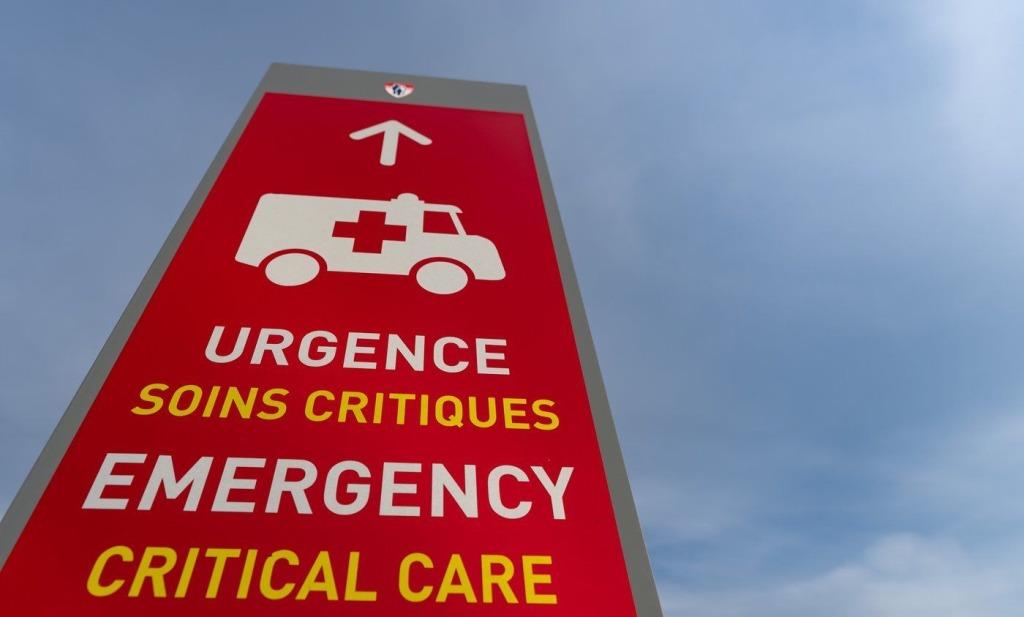ERs ‘remain under pressure’: Santé Québec

Posted January 24, 2025 8:40 am.
Last Updated January 24, 2025 6:58 pm.
Overcrowding is still a serious problem in Quebec’s emergency rooms and with influenza cases rising, Santé Québec is urging the most vulnerable to get their flu shots to help alleviate the pressure on the health network.
On Friday morning, Quebec’s ERs were – on average – at 115 per cent over capacity across the province.
Hospitals in Montreal were at 143 per cent over capacity, with the Lakeshore at 206 per cent; Lachine at 200 per cent; and the Royal Victoria at 197 per cent.
In Montreal and the 450 regions — Laval, the Laurentians, Lanaudière, and Montérégie — things have gotten worse with aging populations that need more complex care when they go to the ER.
“More elderly people with more chronic illness. So they are spending more time on the stretchers in the emergency room, the time to find an orientation and make the diagnosis, etc.,” said Robin Marie Coleman, Santé Québec’s assistant vice-president of access and care pathway co-ordination.
“The accumulation of that with the increased volume of patients creates a situation that’s a little bit more difficult for the region of Montreal. And I’m really sensitive to that because I know we have teams, doctors and nurses that it’s really not easy daily.”
However, Santé Québec reports that the average length of stay in ERs fell from 20.1 hours to 19.5 hours from last year Jan. 7 to 20, to this year.
For the same time period, “Montreal and the Laval, Laurentides, Lanaudière and Montérégie regions saw a significant increase in the number of emergency room visits, of 9.2 per cent and 6.7 per cent respectively. In Montreal, this represents more than 200 additional visits per day, compared with the same period last year. This additional pressure on the emergency department explains, among other things, the trend in occupancy rates.”
Santé Québec says they are looking to open more beds for patients — but specialized hospitals in Montreal like the CHUM, the Jewish General and Maisonneuve-Rosemont Hospital often serve patients who don’t live in the city — with more than 30 per cent coming from off the island.
“We are aware of the impact of overcapacity on care unit staff, but our job is to balance the pressure on the floors and in the emergency department, while maintaining safe care and services for all patients, wherever they may be in the network,” explained Véronique Wilson, Assistant General Manager, Network Coordination and Operations Support, for Santé Québec.
For the first time since Quebec’s newly formed Crown corporation in charge of the health network started holding media briefings, the province’s public health director, Dr. Luc Boileau, was in attendance to provide an update on the circulation of respiratory viruses.
In Quebec, COVID-19 cases are trending down, but respiratory syncytial virus (RSV) cases are on the rise — apart from the flu. A new measles outbreak was also reported last week.
Dr. Boileau calling on seniors to get their flu shot — protect themselves — and help alleviate pressure in the ERs. He added that 58 per cent of those 75 and over — living at home have gotten their shot — but the province is aiming to have 70 per cent vaccination rate in that age group.
Faced with pressure in emergency rooms due to respiratory viruses, the Association québécoise des pharmaciens propriétaires (AQPP) has called on Quebecers to get vaccinated in pharmacies.
“Although the situation is under control, we are closely monitoring the evolution of virus circulation. When it increases, its effects are quickly felt in the healthcare network. It’s important to protect vulnerable people, who are more at risk of developing complications and ending up in hospital. Everyone must make an effort, by monitoring their symptoms, washing their hands frequently and taking advantage of the vaccination offer,” concluded Dr. Boileau.
Health authorities say the peak of respiratory virus should come in early February.
In its first briefing of 2025, Santé Québec revealed emergency rooms were in a better situation compared to the year before – with slight improvements in both occupancy and average length of stay.
Santé Québec has asked Quebecers to avoid ERs in non-urgent cases by calling 811 or going to pharmacies, clinics or CLSCs.








